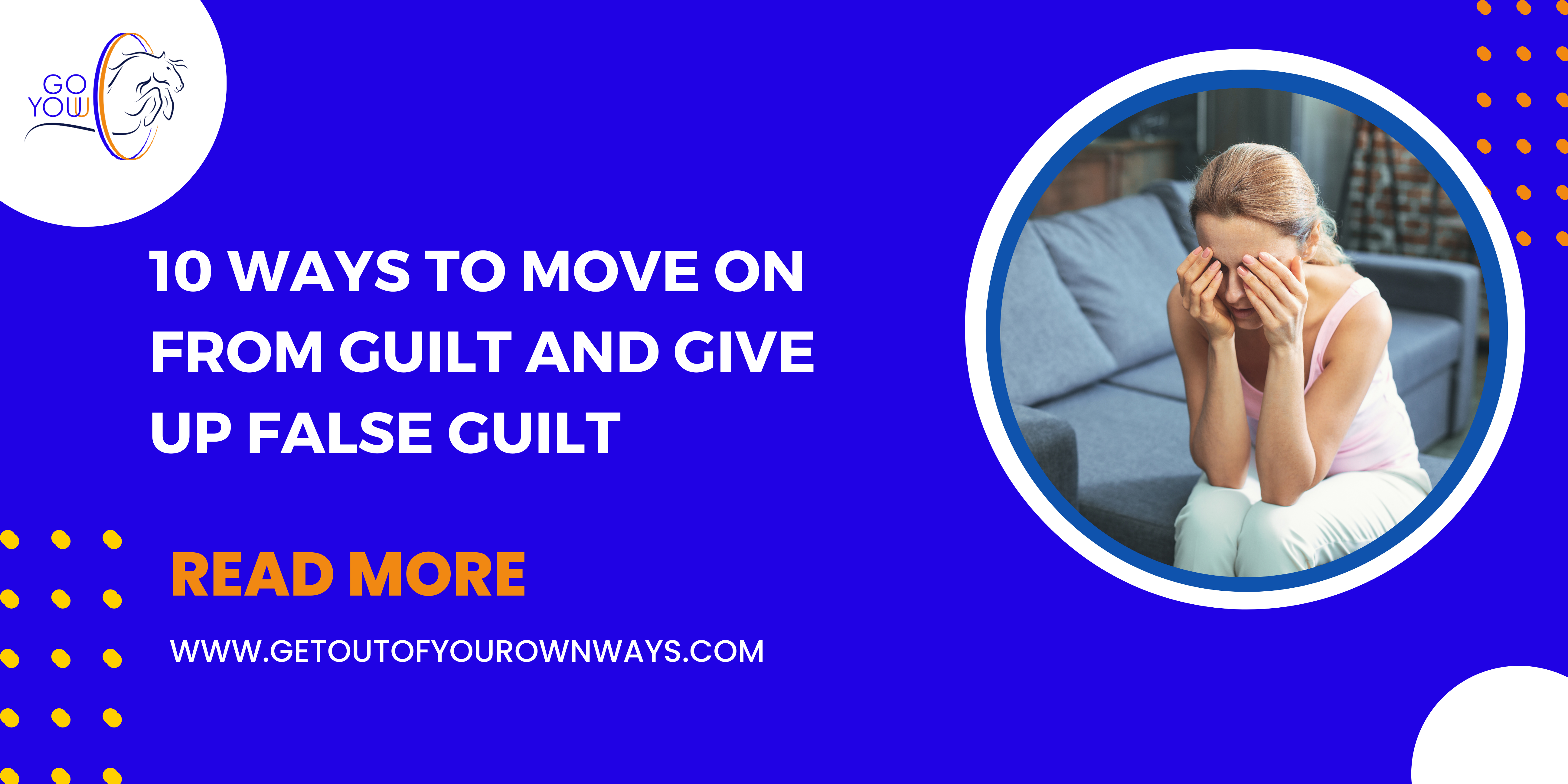It’s time to give up guilt and false guilt with our life coaching and move forward whether in your personal or professional life. Guilt is an emotion that arises when we feel responsible for causing harm or doing something wrong to others or ourselves. Yes, guilt can be a useful emotion as it can help us correct our mistakes and prevent us from repeating them. However, it is important not to dwell on it.
Sometimes we may feel guilty even when we are not responsible for the harm caused, and this can be quite distressing. It can be a burden and prevent you from moving forward with your life. This false or inappropriate guilt comes when you feel responsible for a particular event, when in reality, you had no power or control over the outcome. Holding on to guilt can be a burden and prevent you from moving forward with your life.
Here are some reasons why we might feel guilty when it’s not our fault.
1. Social Conditioning
Many of us are raised to be responsible for the well-being of others, and we are taught to feel guilty if we fail to live up to those expectations. As a result, we may feel guilty even when we are not at fault because we feel like we should have done something to prevent the harm. That is not your responsibility and feeling false guilt is unhealthy.
2. Empathy
Humans are social creatures, and we tend to empathise with others’ feelings. When we see someone suffering, we may feel guilty for not being able to help them or prevent the harm.
3. Perfectionism
Some people hold themselves to very high standards, and they may feel guilty even when they have done nothing wrong. This can be because they feel like they should have been able to prevent the harm, even if it was beyond their control.
4. Fear of Rejection
Some people may feel guilty even when they are not at fault because they fear that others will reject them or blame them for the harm caused. They may feel like they need to take responsibility to avoid being ostracised or criticised.
Here are 10 steps to move forward from guilt and to give up false guilt.
1.Acknowledge the Guilt
The first step is to acknowledge the guilt you are feeling. Recognise that it is a natural emotion and it is okay to feel this way.
2. Identify the Cause
Identify the cause of your guilt. What is it that you did or did not do that caused you to feel guilty? This will help you to understand the situation better and help you to work through your guilt.
3. Take Responsibility
Take responsibility for your actions. Accept that you made a mistake or did something wrong. This can be difficult, but it is an essential step in moving forward. However, if you have identified this as false guilt it is time to let it go, it does not belong to you.
4. Apologise, if Necessary
If your actions have hurt someone else, apologise to them. This can be a significant step in moving past your guilt.
5. Make Amends
If there is something you can do to make up for your actions, do it. This can help you to feel better and move past your guilt.
6. Learn from Your Mistakes
Use the experience to learn from your mistakes. This can help you to avoid making the same mistake in the future.
7. Practice Self-Compassion
It is important to practice self-compassion and be kind to yourself. It can be easy to beat yourself up over your mistakes, but this will not help you to move forward.
8. Let Go
Once you have taken the necessary steps, let go of your guilt and empower yourself. Holding onto it will only weigh you down and prevent you from moving forward.
9. Focus on the Present
Focus on the present moment, using mindfulness strategies, and decide what you can do to move forward. This can help you to create a positive future for yourself.
10. Seek Support
If you are struggling to move past your guilt, seek support from a trusted friend, life coach or therapist. They can provide you with the guidance and support you need to move forward.
In conclusion, feeling guilty when it’s not our fault can have a negative impact on our mental health and wellbeing. Many things in life are out of our control and not our responsibility. It is essential to understand why we are feeling guilty and work towards eliminating false guilt with our life coaching and its unhealthy chains that don’t belong to you.

